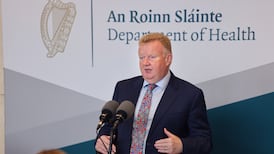Women with breast cancer can safely pause their endocrine treatment to have a baby, new research shows.
Most of the women in the trial, part of which was conducted in Ireland, were able to conceive and more than 60 per cent gave birth after pausing treatment for about two years. The rates of breast cancer coming back were similar to women who did not interrupt their treatment.
About 20 per cent of women with breast cancer are diagnosed in their reproductive years. The Positive trial enrolled women previously diagnosed with early-stage hormone-receptor positive breast cancer, who had decided to pause endocrine therapy to try to get pregnant.
This type of cancer is hormone-sensitive, meaning the cancer cells are fed by their own hormones. Endocrine treatment blocks the natural production of hormones in order to reduce the risk of the cancer returning, but impacts the ovaries, preventing conception while the treatment is ongoing.
READ MORE
Endocrine therapy can be prescribed for five to 10 years to block the effects of hormones and reduce the risk of cancer returning.
Fourteen Irish women, out of 518 globally, took part in the study, which was conducted in St Vincent’s University Hospital, University Hospital Galway, University Hospital Limerick and St James’s Hospital. Prof Janice Walshe, of St Vincent’s was principal investigator on the trial in Ireland.
The women were aged 42 years or younger and had completed between 18 and 30 months of endocrine therapy before pausing it.
So far, researchers have found that the percentage of women whose breast cancer came back (8.9 per cent) was comparable to what occurred in patients enrolled in other studies (9.2 per cent). With a total of 365 babies born to women in the study, the rates of conception and childbirth were similar to or higher than rates in the general population.
Eight patients in the trial at St Vincent’s in Dublin gave birth to six babies, according to Prof Walshe. “This outcome is hugely encouraging. A breast cancer diagnosis can have a huge impact on fertility, and this is a big issue particularly for women who have never had any children.”
Most of the women on the trial presented at the San Antonio Breast Cancer Symposium on Thursday had also had chemotherapy, yet many were able to conceive, sometimes with the assistance of IVF. Trial participants were strongly recommended to resume endocrine therapy afterwards. To date, 76.3 per cent have. The Irish arm of the trial was funded by the Irish Cancer Society and the Health Research Board, with support from Cancer Trials Ireland.














